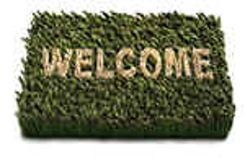
From Condominium to Gated Community, the common thread is people. A diverse village is created within each association. Finding ways to educate and encourage members, and at the same time protect and preserve their physical assets, can be challenging as well as rewarding.
As more and more people are moving into community associations for the first time, it should be a priority for board members and community association managers to develop a sense of belonging and ownership for each new member. Educating them from the start in a constructive way can plant the seed for a long-term positive relationship within the community.
Welcome New members
Welcome packets are the first step in preparing your new member for a successful transition into the world of a governed community. Every association should develop some sort of welcome packet that contains the most important points of interest to the new owners. Items to consider for welcome packets: a cheerful welcome letter from the Board of Directors; a one page bullet point house rule summary; how to obtain keys and vehicle stickers; where to park; child friendly areas; pet registration forms; website access; mailbox access; a list of amenities that include how and when they can be utilized; how to reach the Board, Managers and other pertinent service personnel; contact information for rubbish, electric, cable, water, etc. should the owners be required to activate any such service; as well as how to pay their maintenance fees. It is important that you inform new members of all the wonderful amenities and community activities as well as what is expected of the owners. This helps to prevent any unintentional infractions and embarrassment for the new members and goes a long way towards garnering a positive relationship.

Ongoing Communication
Ongoing communication within an association plays a key role in educating owners. A website is an inexpensive tool that can provide an on-going stream of current information to owners, and even potential buyers. Developing a team or committee within the association to update and maintain the website also creates an atmosphere of ownership and pride in the community. A calendar of events is a valuable tool to keep owners informed of current and upcoming events and is a means of encouraging participation. Listing dates for meetings, bake sales, garage sales, owners' forums, committee meetings, etc. are easy ways to get owners involved.
Developing committees to address on going issues or one-time events is a great way to promote participation. Encourage your neighbors to volunteer for various committees to gain a sense of community! Serving on a committee provides two valuable things to an association; it enables a task force to do the legwork and research on a particular issue for the board, and it grooms people to become future board candidates. Getting to know your neighbors and getting involved enables the association to tap into a vast array of talents and experience that can benefit the association.
Rule Enforcement
Rule enforcement is one of the biggest challenges that an association faces. A thorough review of the house rules on an annual basis is important in order to determine whether the rules are in compliance with the governing documents, as well as state and local agencies. Also one can then reanalyze whether the rules are reasonable and enforceable. The rule of reasonable and enforceable can sometimes be a slippery slope for boards and owners. Associations must be sure that owners, rental agents and occupants receive current, legible house rules, as well as a one page summary for posting inside the units. This is a great way to continue the education process. When revising rules, keep in mind that they should be in an easy to read and eye catching format to interest the readers. The rules should be made available electronically or by hard copy. This will help to prevent an owner from unknowingly violating the rules. Don't forget to include a process for issuing violations and a clear appeals process for owners to follow. Consistency in citing violations is very important in order to avoid claims of discrimination.

Occasionally, even a harmonious association can encounter rogue board members or hostile owners. It is important to recognize issues or encounters that that are potentially litigious, threatening, or detrimental to the community. The board of directors should promptly and pro-actively address the situation. Generally, an investigation to determine the facts is necessary. If possible, speak directly to the affected parties to determine the extent of the conflict. A written letter should then be sent to the offending party in a timely manner outlining the alleged incident and firmly stating that no such actions will be tolerated or accepted within the community and that they are in fact, (whether it be intentional or unknowingly), placing the association at risk for a discrimination, hostile workplace environment, liability, or other such claim. These situations, left unaddressed, cost ALL owners in the end. It is important to have a means in which owners and employees can lodge complaints for the board to review. Often, having a link on the association's website for complaints can prove to be a beneficial avenue for declaring a potential problem.
Annual Owner Meetings
Annual Owners Meetings are a great way for the entire community to come together to share views, concerns, and recommendations and, in general, enjoy the fellowship of their neighbors. The board should try to address issues throughout the year, take action, solve problems and maintain the community to promote a positive annual meeting for the members. Operating in a transparent manner and holding productive board meetings can reduce the overall concerns owners frequently have with their boards.
In summary, by educating the owners you can develop a harmonious community and generate involvement by its members. Your community association manager is typically a great resource for ways to promote continuity and participation within the community. Resident or site mangers should be trained in appropriate and effective communication skills as they represent the board of directors - - and often take the direct hit from unhappy owners. The Board should avoid appearing aloof and unreachable. When you volunteer and are elected to the board, you should be willing to give your time and energy to the task and be willing to communicate with the owners. Remember, you too shall one day be sitting in the audience hoping your representative is acting in your best interests.
 Print
Print Email
Email







